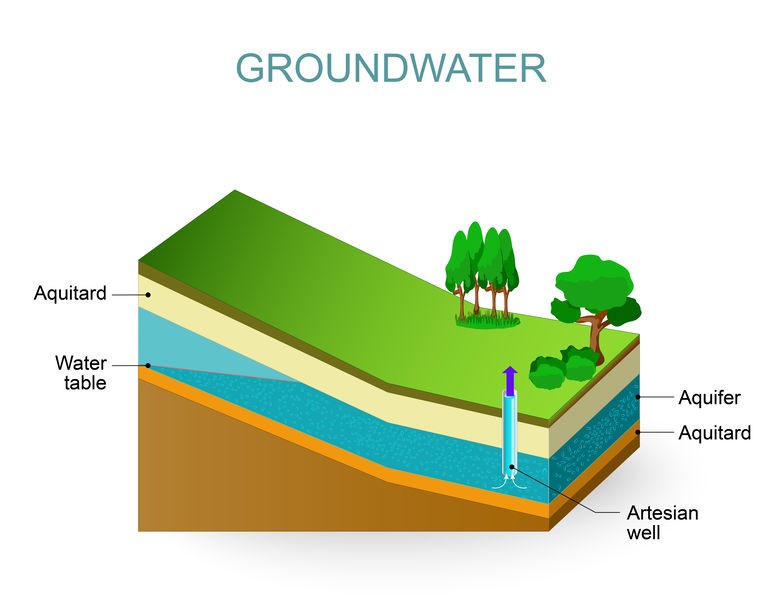List Of Contents
- 1 Introduction
- 2 The Significance of Groundwater
- 3 Groundwater Analysis: Techniques and Technologies
- 4 Challenges in Groundwater Management
- 5 The Future of Freshwater Resources
- 6 Innovations in Groundwater Analysis and Management
- 7 The Role of Policy and Regulation
- 8 The Intersection of Groundwater and Technology
- 9 Conclusion
- 10 Author
Groundwater, a crucial component of the world’s freshwater resources, plays a vital role in sustaining ecosystems, agriculture, and human consumption. With the increasing demand and the challenges posed by climate change, groundwater analysis has become more critical than ever. This 1000-word article explores the importance of groundwater analysis in managing and preserving freshwater resources for the future.
Introduction
Groundwater is one of our most valuable natural resources, often unseen but crucial for sustaining life, supporting ecosystems, and driving economic growth. As surface water sources become more strained due to various factors, including population growth and climate change, the role of groundwater becomes increasingly important. Groundwater analysis, the scientific examination of underground water reserves, is essential for understanding, managing, and protecting this vital resource.
The Significance of Groundwater
A Major Source of Freshwater
Groundwater accounts for a significant portion of the Earth’s freshwater reserves. It provides drinking water to billions of people and is a key source for agricultural and industrial activities.
Groundwater and Ecosystems
Groundwater contributes to the health of ecosystems by maintaining the flow of rivers and lakes, especially during dry periods. It supports biodiversity in various habitats, from wetlands to forests.
Groundwater Analysis: Techniques and Technologies
Monitoring Water Levels
Regular monitoring of groundwater levels helps in understanding the availability and sustainability of this resource. Techniques include the use of observation wells to measure water levels over time.
Quality Assessment
Groundwater analysis involves assessing water quality to ensure it is safe for consumption and use. This includes testing for contaminants such as nitrates, heavy metals, and pathogens.
Advanced Technologies in Groundwater Study
Advancements in technology, such as remote sensing, Geographic Information Systems (GIS), and hydrological modeling, have enhanced the ability to analyze and monitor groundwater systems more effectively.
Challenges in Groundwater Management
Overextraction and Depletion
One of the biggest challenges facing groundwater is overextraction, leading to depletion and declining water levels. This is particularly prevalent in areas with intensive agricultural activities or growing urban populations.
Pollution and Contamination
Groundwater is susceptible to contamination from various sources, including industrial waste, agricultural runoff, and improper disposal of chemicals. Contaminated groundwater can have severe health and environmental consequences.
Climate Change Impacts
Climate change is altering precipitation patterns, leading to changes in groundwater recharge rates. In some regions, this results in reduced groundwater availability, affecting water security.
The Future of Freshwater Resources
Sustainable Groundwater Management
Sustainable management of groundwater resources is essential for ensuring long-term water security. This includes implementing policies and practices that balance groundwater extraction with natural recharge rates.
Integrated Water Resource Management (IWRM)
Adopting an integrated approach to water resource management, which considers the interconnections between groundwater, surface water, and ecosystems, is crucial for effective water management.
Conservation and Efficient Use
Promoting water conservation and efficient use, especially in agriculture, which is the largest consumer of groundwater, is vital for preserving this resource.
Innovations in Groundwater Analysis and Management
Artificial Recharge Techniques
Artificial recharge techniques, such as managed aquifer recharge (MAR), involve replenishing groundwater reserves intentionally. This can mitigate the effects of overextraction and support sustainable water management.
Real-Time Monitoring Systems
The development of real-time monitoring systems allows for more immediate responses to changes in groundwater levels and quality, facilitating proactive management.
Public Awareness and Education
Raising public awareness about the importance of groundwater and educating stakeholders on sustainable water practices are key to ensuring the preservation of this resource.
The Role of Policy and Regulation
Groundwater Governance
Effective governance, including the establishment of legal frameworks and regulatory bodies, is necessary to manage groundwater resources sustainably and equitably.
International Cooperation
Given that groundwater resources often cross national boundaries, international cooperation is essential for effective management and conflict resolution.
Incentives for Sustainable Practices
Implementing incentives for sustainable water use, such as pricing mechanisms or subsidies for water-saving technologies, can encourage conservation efforts.
The Intersection of Groundwater and Technology
Advances in Data Analytics
Utilizing advances in data analytics can improve the understanding and prediction of groundwater systems, aiding in more informed decision-making.
Innovations in Water Treatment
Developments in water treatment technologies can enhance the ability to purify and reuse groundwater, particularly in areas facing water scarcity.
Harnessing Renewable Energy
Integrating renewable energy sources into groundwater extraction and treatment processes can reduce the environmental footprint of water resource danatoto management.
Conclusion
Groundwater analysis is a critical tool in understanding and managing one of the planet’s most precious resources. As we face increasing challenges from population growth, industrialization, and climate change, the need for sustainable groundwater management becomes more pressing. Innovations in technology, policy, and public engagement are key to ensuring that groundwater continues to sustain ecosystems, communities, and economies in the future. By investing in the study and preservation of groundwater, we can secure freshwater resources for generations to come, underscoring the profound importance of groundwater in the global environmental landscape. The future of our freshwater resources depends on our ability to understand, value, and protect our groundwater systems, making the role of groundwater analysis more vital than ever.

